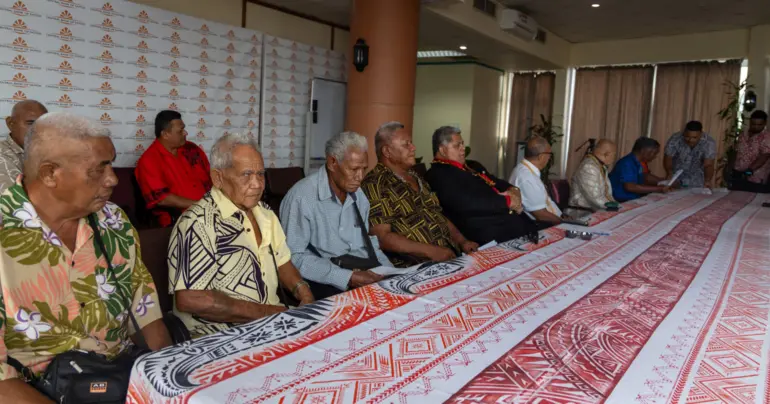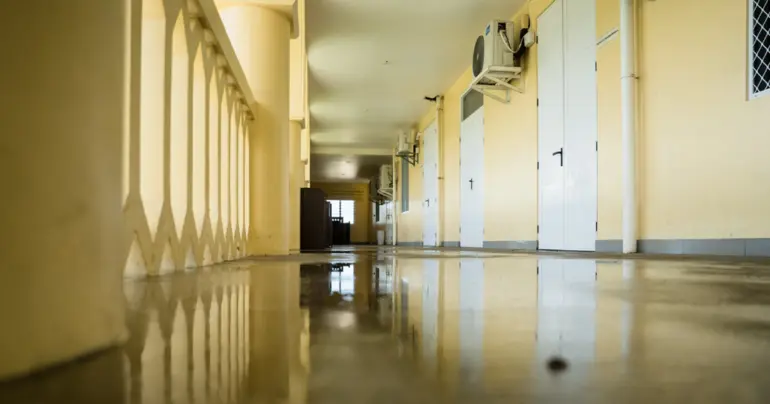Govt. must make the time for good policy reform
 By The Editorial Board
•
26 September 2021, 12:00AM
By The Editorial Board
•
26 September 2021, 12:00AM
The Government’s speedy dumping of the longstanding controversial policy of Daylight Savings Time on Sunday represents its first political misstep in office.
Last week the Ministry of Commerce, Industry and Labour (M.C.I.L.) made a public announcement that there would be no need for Samoans to set their clocks forward this weekend after more than a decade of the annual time-change.
But when Samoans arose on Sunday - many reliant on their phones as their alarm clocks and time-keeping device - they found that their time keeping devices were an hour fast. They did not reflect the Government’s recent decree but rather automatic updates from internet and software providers who had not been given enough notice to adjust their schedule for Samoa's time zone.
We believe that there was a lot wrong with the Daylight Savings Time policy and that scrapping it was a good initiative. But the Government's execution of the change was simply too hurried and worryingly ill-thought through.
The speed with which this change was introduced suggests to us the Government was naive about its power to effect such a change easily in a world that is globally connected and run by international tech giants.
The change to Daylight Savings Policy was announced by M.C.I.L. last Monday with a casual statement:
"The public and businesses are therefore advised to continue the normal time as currently in force,” it read.
Many people reported arriving early to church and being confused about the actual time. But the full extent of the time change remains to be seen - but even minor disruptions to automated time systems can have a major impact on big businesses and other large organisations.
Arbitrary changes of time, even by so little as an hour, can have serious impacts on organisations and businesses reliant on up-to-the minute record keeping and accounting.
Multinational businesses and organisations that are digitally connected to the rest of the world are also likely to have experienced hiccups to their operations at the very least.
(As an example, the entire content of the Samoa Observer’s Facebook page was briefly but entirely wiped as the social networking site struggled to reconcile the stated publication dates of articles with what it believed to be the actual time in Samoa.)
But what is more significant than any of these seemingly minor consequences is how the policy reflects on the Government’s decision making.
Implicit in the Fa'atuatua i le Atua Samoa ua Tasi (F.A.S.T.) party’s rise to power this year was a criticism that the incumbent Government was taking too many unilateral decisions by the former Prime Minister Tuilaepa Dr. Sailele Malielegaoi.
As is reported on today’s front page, the Samoa Observer has been told the Government was warned by computer and telecommunications experts and businesses that undertaking such a change so quickly would result in confusion.
At the very least, our reporting revealed the Government had been told more time was needed to inform the domestic mobile and international computer networks who set the automatically-updating digital times on which so many Samoans rely.
In contradiction to this newspaper’s reporting, M.C.I.L.’s Minister, Leatinu'u Wayne Fong, says he was unaware of the Cabinet or the Government receiving any such warnings and argued that Samoa’s national policies should not be made with multinational companies in mind.
In many respects this version of events is more worrying than the Government having been advised not to take the policy and having done so anyway.
It is a truism that we live in a globalised society, the glue of which are the computer networks upon which computers, mobile phones and software used by ordinary Samoans and businesses for things such as automatically updating the time.
To have ignored that fact suggests naivety on behalf of the Government about the reality of the networked world in which we live, or a determination to press ahead with its reform agenda regardless of the consequences.
It also raises the question about why the Government did not look to involve a specialist technologist from within its ranks, such as the Office of the Regulator or experts from the Ministry of Communications and Information Technology who would have much better known the potential pitfalls of such a hurried change.
The result has been for one of the F.A.S.T. Government’s first and most visible policy changes having been launched unsuccessfully in the eyes of the public.
Whether the Government was, as we understand, warned about the risks of such a hasty change and chose to press ahead anyway, or if it failed to seek out advice on the issue are equally damning scenarios.
The new administration has an ambitious policy reform agenda, of which the rollback of Daylight Savings Time should have been the easiest planks to implement.
Instead it was botched, a move that will play directly into the opposition leader’s criticism of the Government’s Ministry not being experienced enough to govern.
Sunday’s failure will be a costly political error for the Government.
But we hope that it is a lesson in Government: that having a new policy platform alone is meaningless, unless it is built on the foundations of the best advice.
 By The Editorial Board
•
26 September 2021, 12:00AM
By The Editorial Board
•
26 September 2021, 12:00AM










